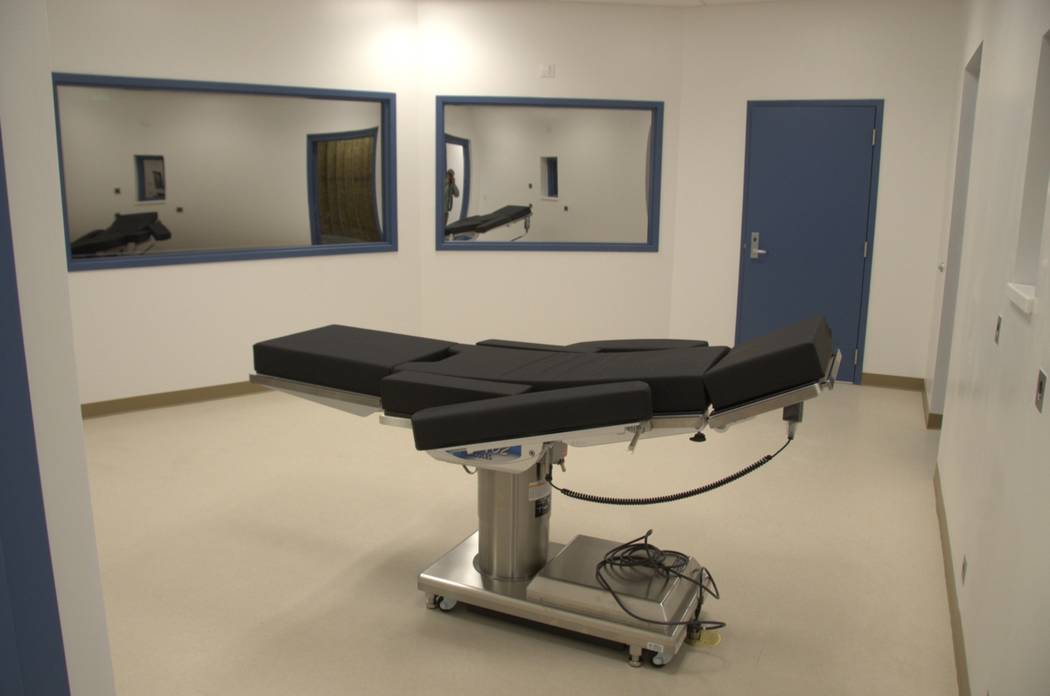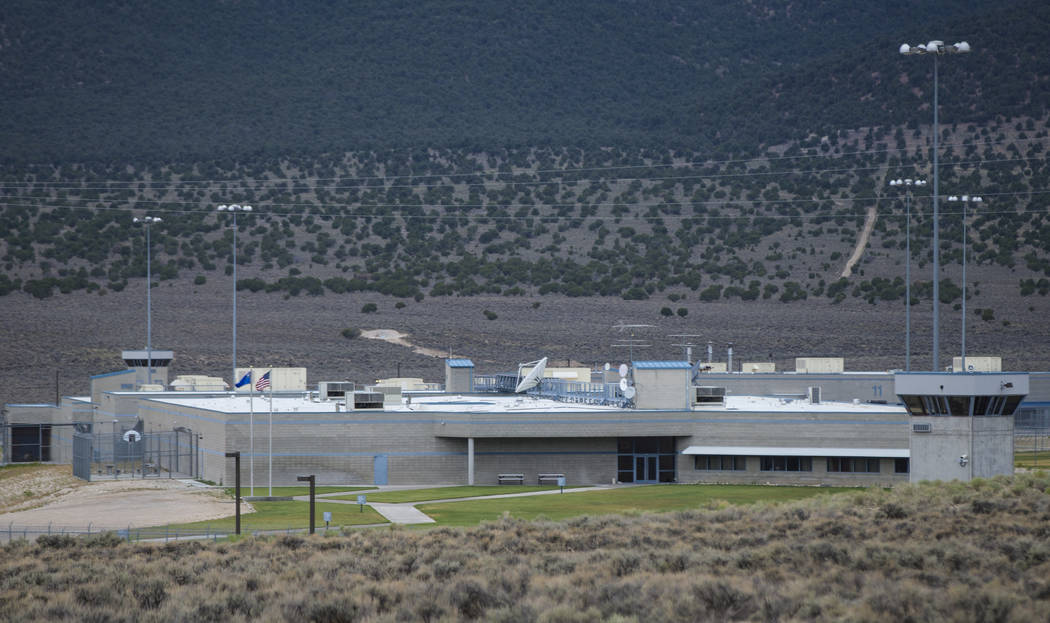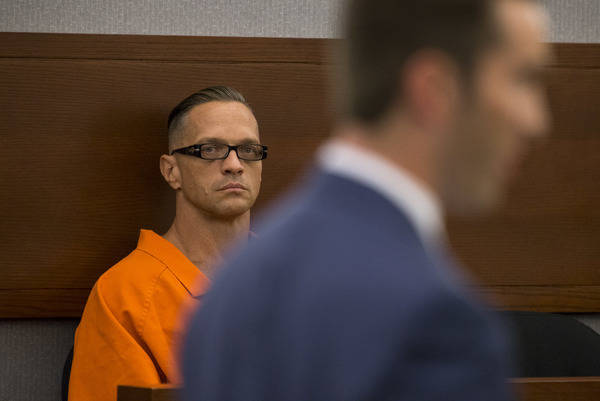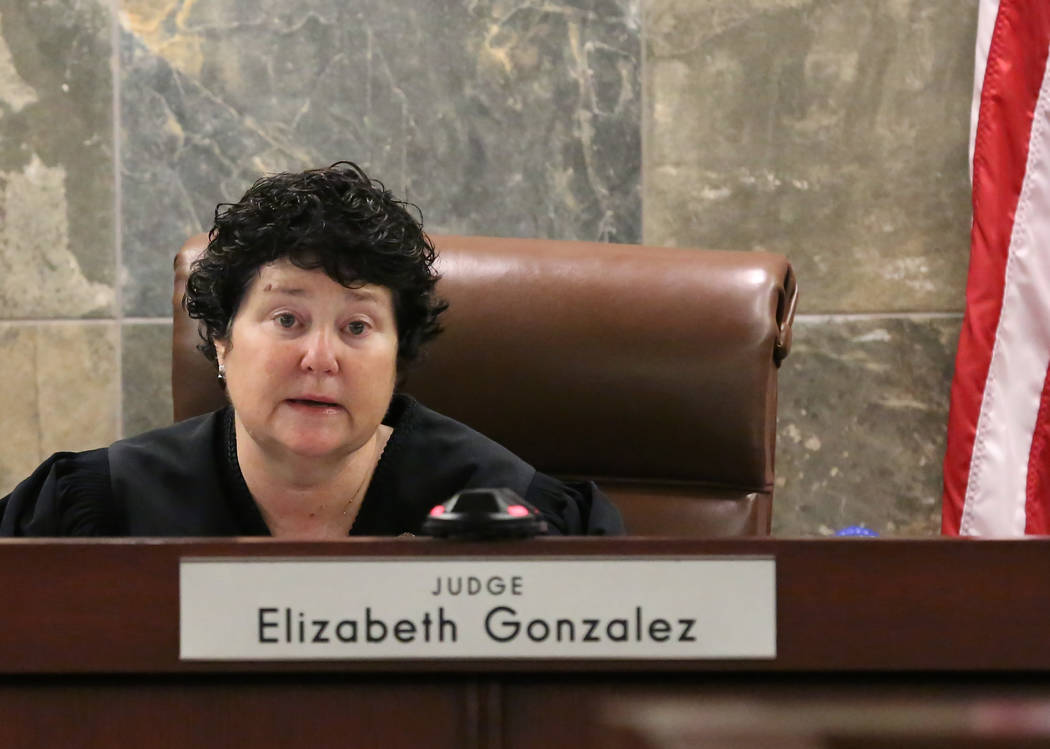Could political wave end capital punishment in Nevada?




Buried in the Nevada attorney general’s court papers over blocked lethal injection drugs sits a line that hints at a bleak future for capital punishment in the state.
It was one of the last paragraphs in a 55-page appeal to the Nevada Supreme Court over District Judge Elizabeth Gonzalez’s late-September decision to prohibit the prison system from using its supply of a sedative in the lethal injection of condemned killer Scott Dozier.
Lawyers for Alvogen, which distributes midazolam, had argued that their product was obtained by prison officials through subterfuge. They claimed the company would suffer irreparable harm if the drug were used in a state-sanctioned execution.
“Alvogen’s legal theory will virtually abolish the death penalty without a vote of the people or their representatives,” wrote Deputy Solicitor General Jordan Smith, who represents the Nevada Department of Corrections. “Corporate interests should not be allowed to interfere with lawful capital sentences and delay justice for victims and their families.”
Republican Attorney General Adam Laxalt said during his recent failed campaign for governor that he supports the death penalty, “especially for dangerous criminals guilty of horrific, gruesome crimes like Scott Dozier.”
Laxalt and his deputies have fought court battles for more than two years with criminal defense attorneys and billion-dollar pharmaceutical corporations to ensure that a three-drug killing cocktail is upheld.
Execution delays
Dozier’s execution was halted in July, for the second time in nine months, after Alvogen sued the prison system. Dozier would be the first prisoner executed in Nevada since 2006.
The inmate, who waived his legal appeals in late 2016, was sentenced to die in 2007 after first-degree murder and robbery convictions in the killing of Jeremiah Miller. Dozier had a murder conviction in Arizona before he was brought to Nevada to face charges in Miller’s death.
“A drug company’s private litigation filed to score public relations points with anti-death penalty advocates is not a lawful basis to prevent a capital sentence,” Smith wrote, pointing out that other states have shot down similar litigation. “Yet despite the frivolous nature of the drug companies’ claims, this case lingers and renders Nevada an outlier.”
Smith tried to show a path that would open the gate to continued lawsuits, including attacks on “every method of execution, from the rope-weaver, armorer, electrician, and chemist, to the pharmacist and everyone in between.”
But defense attorney Scott Coffee, who closely tracks the death penalty in Nevada and across the country, said the argument rings hollow.
“There’s a 40-year history in Nevada of not actually following through with death sentences,” Coffee said. “Why does it make a difference now?”
The high court asked the drug company to respond to the prison system’s appeal by next week, and the attorney general’s office has another two weeks to file its reply.
New attorney general
But by the time the Nevada Supreme Court likely will hear arguments in the case, the newly elected attorney general, Democrat Aaron Ford, will have taken office. He will not say whether he plans to drop the appeal.
Ford told a Las Vegas Review-Journal reporter that he is opposed to the death penalty, but he also vowed to “uphold the law of the state, irrespective of any case going on.”
He said he could not comment on the current attorney general’s appeal of Gonzalez’s ruling, adding that he still needs to review pending litigation in which the office has an interest.
Coffee said Ford could drop the appeal once he takes office, “particularly if he considers it to be a waste of resources or lacking in merit.”
Meanwhile, two new state Supreme Court justices are set to take the bench in January, and Nevada voters recently elected various Democrats to public office across the state who could sound the death rattle for Nevada’s executions.
Governor-elect Steve Sisolak has said he does not support the death penalty, “except for in extreme cases.”
Democratic Assemblyman Ozzie Fumo, a criminal defense lawyer who recently won his second term in office, said he anticipates legislation that calls for abolishing the death penalty, which he said he would sign, or a request for the governor to call for a moratorium.
“There’s a social change coming,” Fumo said. “Overwhelmingly, we’re going to see people think about it, and say this is wrong.”
Clark County District Attorney Steve Wolfson, who has opposed prior legislation to abolish the death penalty, said it “would be prudent to have a discussion about alternative means” of execution, given the delays in carrying out lethal injection.
Death penalty costs
Fumo argued that the money spent on death penalty cases should instead fund other state institutions, such as education, along with police and fire protection.
In his appeal, Smith listed costs and man-hours that went into preparing for Dozier’s execution.
More than 100 prison staff members, including officers, administrators and supervisors, spent upward of 2,600 hours rehearsing the steps at Ely State Prison.
The prison system spent “well-over $100,000,” Smith wrote, and each training session, “which lasts 10 hours, utilizing the entire facility, costs around $15,000 a day.” In the meantime, the entire facility is placed on lockdown, he added.
Smith pointed to a poll that stated that 55 percent of Americans supported the death penalty, while 66 percent of Nevadans favored keeping it.
Prosecutors in Dozier’s case have argued that delaying his death wish “inflicted profound emotional disturbance, disappointment, and confusion” for the family of his victims.
But Fumo pointed out that many convicted killers sit on death row in Nevada for decades.
“The 50 years that the families are waiting doesn’t give them any closure,” Fumo said. With a sentence of life in prison without the possibility of parole, he continued, victims’ families know that murderers remain in prison “and leave in a pine box.”
Contact David Ferrara at dferrara@reviewjournal.com or 702-380-1039. Follow @randompoker on Twitter.













